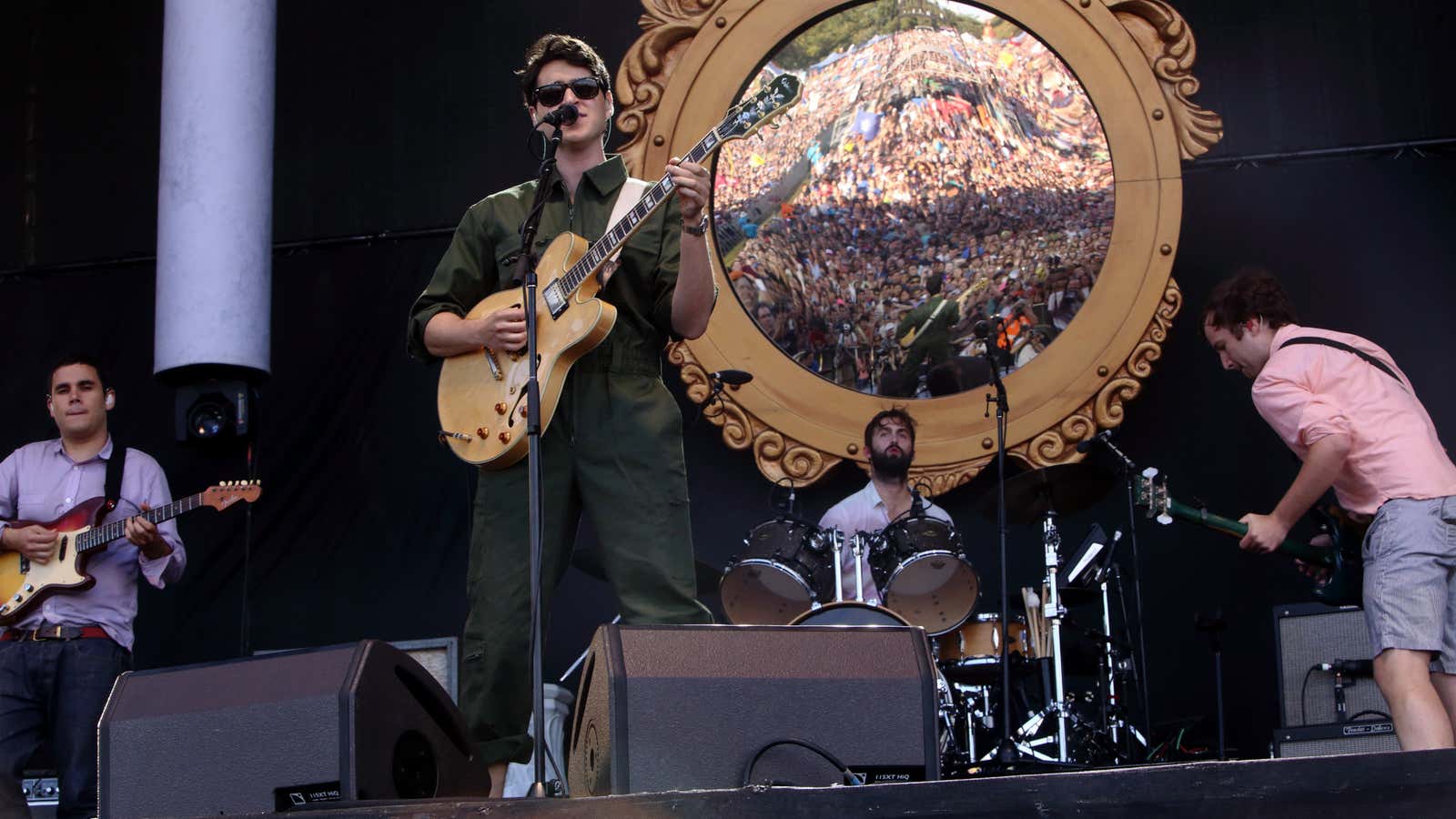Pandora Media has suffered a torrid few months. Publishing companies and big record labels have been fighting with it over royalties, while investors are questioning its ability to keep growing.
But this week the company secured another small but important agreement that could end up being a boon for musicians, if not the company’s bottom line.
The internet radio company struck a licensing agreement with Merlin, an agency that manages recording rights for independent music labels and controls rights to about 10% of the digital music market. It’s the first time Pandora has signed a deal directly with copyright owners, rather than simply paying the royalty rates set by the relevant government agency. (Fully interactive music services, like Spotify, are legally obligated to sign direct deals with labels, and the fact that Pandora doesn’t have to is a big bone of contention in the industry.)
Tim Westergren, Pandora’s founder, told Quartz that the deal heralds a new era for the company’s relationship with labels. “Arguably the most influential label organization in the independent world is actively collaborating with Pandora, and it’s mutually beneficial,” he says. “They are acknowledging that this [Pandora] is a really important platform, the vast majority of these artists don’t get broadcast radio play, internet radio is a home for them and now its reaching scale.”
As part of the agreement, Merlin’s labels and artists will get access to data from Pandora’s users (there are currently more than 75 million active ones) about listening habits and preferences. This could be used by artists to drum up support for shows (and in theory, which cities to visit on a tour, which songs to play in a show, which bands to choose as support acts). “Imagine you have a listener in Minneapolis and a song comes on and when the song ends an artist comes up and says I’m playing in Minneapolis next weekend, click here to get tickets,” he explains.
Merlin artists will also eventually be able to use Pandora to connect directly with users who are fans of their music. ”The vast majority of artists have more people on Pandora who have created a station using their name than Twitter followers,” says Westergren. “These are self-declared fans of the music, [Pandora] is literally their audience and now they are going to be able to talk to them directly.”
Pandora already pays out more than half of its revenue in royalties and the company confirmed there will be no impact on its costs from the deal. ”We wouldn’t do any deal where there was any risk we were going to get paid less,” Merlin’s CEO Charles Caldas told Billboard.
The deal is recognition that Pandora can be a useful distribution tool for artists. And the comparative ease with which it was signed (YouTube, for example, is in a damaging stalemate with indie labels for its own service) suggests Pandora is not the enemy it is often portrayed to be by major labels and some prominent artists.




